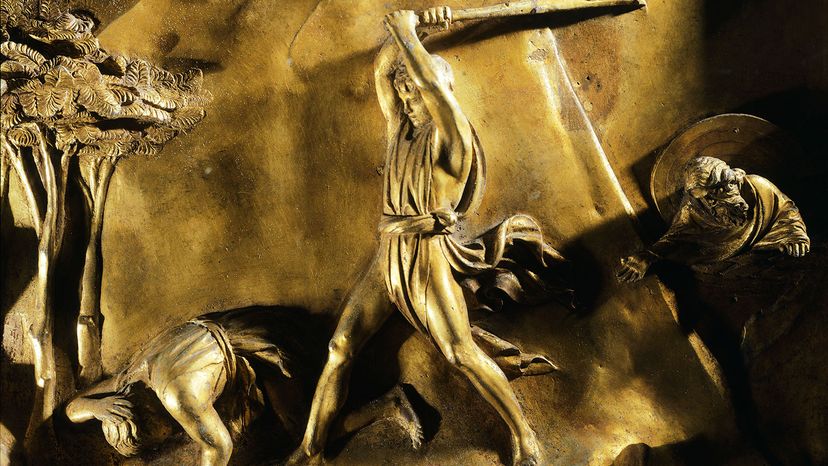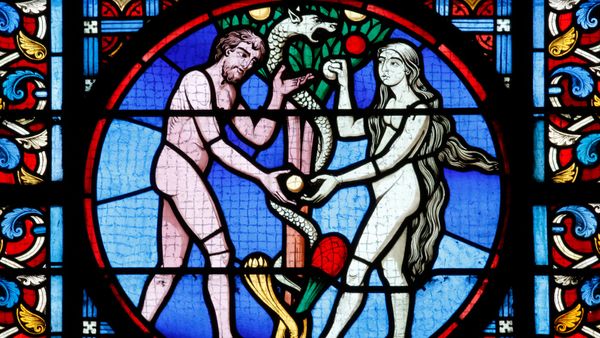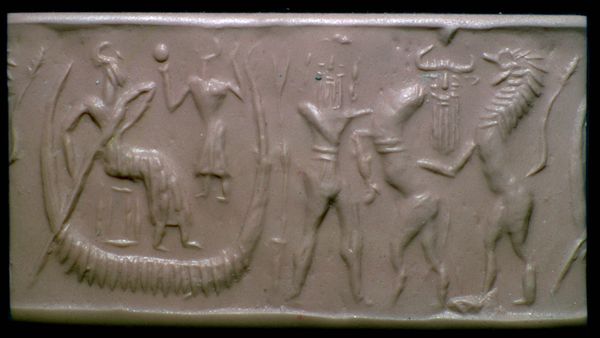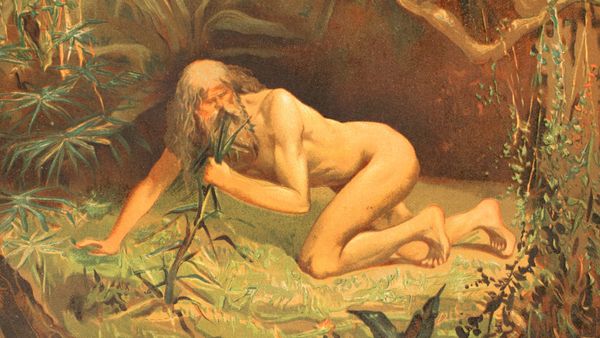Rabbi Ornstein says there's good reason to believe that the biblical tale of Cain and Abel, like others in the book of Genesis, is an abridged version of a much longer and more detailed myth that circulated for centuries in the ancient Near East. So why did the editors of the Torah (the first five books of the Hebrew Bible starting with Genesis) decide to include such a bare-bones version of the first fratricide?
By paring the story of Cain and Abel down to just 17 verses, the ancient biblical authors purposefully left holes in the narratives, says Ornstein.
"Rather than give you a bunch of answers, the Torah's editors wanted you, the faithful reader — or the not-so-faithful reader — to ask really good questions," says Ornstein, "questions about ourselves and others, what it means to be human and what it means to be responsible for your fellow human beings, who are your brothers and sisters."
For modern readers, one of the more interesting questions to ask is why Cain was so angry and hurt, and whether Cain's mistreatment at the hands of God somehow excused his crime.
Cain was the firstborn son of Adam and Eve. The Hebrew for Cain is Cayin, which means "acquire," according to Ornstein. Eve says in Genesis that she named him Cain because, "I have gotten a man from the Lord." As firstborn, Cain followed in his father's footsteps. When Adam was expelled from Eden, God sentenced him to till the now "cursed" earth, and Cain was the one who continued Adam's labor as a farmer.
In contrast, when Abel was born, Eve doesn't explain why she gave him that name. The Hebrew for Abel is Hevel, which means "vapor" or "steam" in Hebrew, according to Ornstein. Abel doesn't follow in the "family business" of battling thistles and weeds by the sweat of his brow but raises sheep instead.
Yet when Cain, the beloved firstborn child, offers God a sacrifice of the hard-won fruits of his harvest, God rejects it. Seemingly ignoring the "family history" of the expulsion from Eden and the cursing of the ground for Adam's sake, God turns up his nose at Cain's paltry produce and finds favor instead with the animal sacrifice of the second-born Abel, literally a "nothing man" who doesn't even utter a word in Genesis.
From Cain's perspective, he had every reason to be "wroth." If Cain's sacrifice was unacceptable, it was because he was hamstrung by his father's curse, and therefore it was unfair for God to compare Cain's offering of vegetables to his younger brother's delectable and fatty roasted meat.



